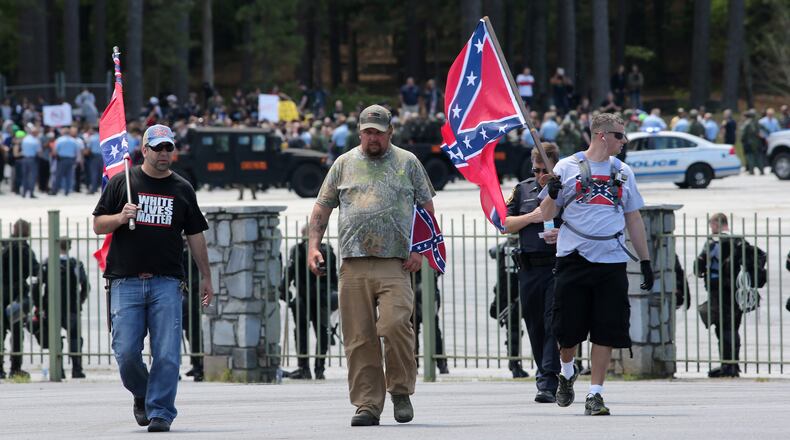The Georgia NAACP urged Georgia lawmakers to reject a measure that would formally declare April 26 as Confederate Memorial Day, calling it a "pathetically divisive resolution." Georgia leaders quietly erased the holiday from state calendars two years ago.
The measure, House Resolution 644, was introduced this week by state Rep. Tommy Benton, a Jefferson Republican with a history of contentious statements.
His proposal, which is not expected to gain any traction in the final days of the legislative session, makes no mention of slavery or the phrase "Civil War." But it would recognize the conflict as a "four-year struggle for states' rights, individual freedom and local government control."
"We just elected a president that said he was tired of political correctness. And so that was the reason that we were looking to introduce the resolution," Benton told WABE. "We think that our heritage is just as important as everybody else's."
Francys Johnson, the president of the Georgia chapter of the NAACP, called on Gov. Nathan Deal and other state leaders to publicly oppose the measure, saying "hate has no place in a modern society."
Georgia lawmakers from both parties have largely avoided entering a divisive debate about Confederate heritage. And the state has steadily moved to cut official ties with its Confederate past - including the state's annual celebration of Confederate Memorial Day.
For decades, the fourth Monday in April was known in Georgia as Confederate Memorial Day. But Deal quietly struck that name, as well as Robert E. Lee's birthday, from the state's official holiday calendar in 2015 and replaced them with a more neutral title: "State Holiday."
Deal's decision to quietly change the names came amid increased scrutiny of Georgia's embrace of Confederate symbols after the massacre of nine black worshippers at a Charleston church by a suspected white supremacist.
State-issued license plates featuring the Rebel emblem have been altered, though only slightly. Sculptures and paintings of Confederate leaders in the statehouse are facing fresh criticism.
And a statue of former U.S. Sen. Tom Watson, a onetime populist turned white supremacist, was removed in 2013 from the statehouse grounds.
Benton, a former schoolteacher and an unapologetic supporter of Georgia's Confederate heritage, has earlier backed measures to protect state monuments from being marred or moved. And he has said the Ku Klux Klan, while he didn't agree with all of their methods, "made a lot of people straighten up."
About the Author
The Latest
Featured




